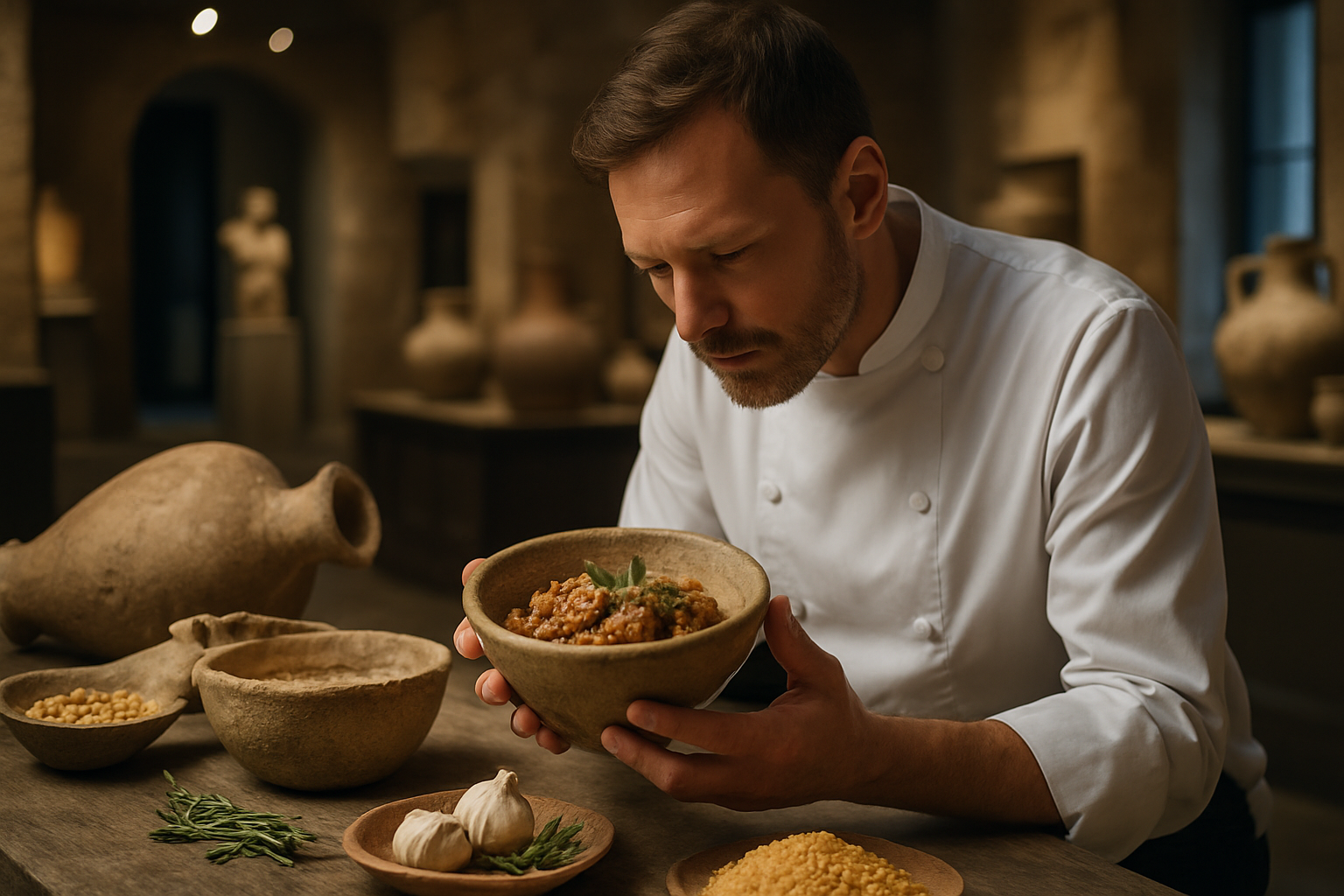Culinary Alchemy: Transforming Humble Ingredients into Gourmet Delights
Elevate your cooking game by mastering the art of transforming simple ingredients into extraordinary dishes. This culinary alchemy isn't just for professional chefs – with a little know-how and creativity, you can turn everyday staples into gourmet masterpieces right in your own kitchen.

Texture Transformation Techniques
Texture plays a crucial role in transforming ordinary ingredients into extraordinary dishes. By altering the texture of familiar foods, you can create entirely new eating experiences. Try turning vegetables into silky smooth purees, or dehydrating fruits to concentrate their flavors and create chewy, candy-like treats. Crisp up herbs by flash-frying them, or turn liquids into foams using a simple hand blender and a touch of lecithin. Even something as simple as toasting nuts or seeds can add depth and complexity to a dish. By mastering these techniques, you’ll be able to add interesting textural elements to your cooking, elevating even the most basic ingredients.
The Power of Presentation
They say we eat with our eyes first, and presentation can truly transform a dish from mundane to magnificent. Start by thinking about color – a vibrant assortment of vegetables or a sprinkle of fresh herbs can instantly make a plate more appealing. Play with height and negative space on the plate to create visual interest. Use unconventional serving vessels like mason jars, slate tiles, or even edible containers like bread bowls or hollowed-out fruits. Don’t be afraid to deconstruct familiar dishes, presenting components separately for a modern twist. Remember, even simple ingredients can look gourmet when artfully arranged.
Infusion and Layering Flavors
Infusion is a powerful technique for transforming basic ingredients into complex, flavorful components. Herbs, spices, and aromatics can be steeped in oils, vinegars, or spirits to create custom flavoring agents. Try infusing olive oil with garlic and rosemary, or creating a vanilla-lavender simple syrup for cocktails. Layering flavors is another way to add depth to dishes. Start with a base flavor, then build upon it with complementary tastes. For example, start with plain rice, then add sautéed onions, toasted nuts, and dried fruit for a pilaf that’s anything but ordinary. By infusing and layering flavors, you can turn simple ingredients into sophisticated dishes with minimal effort.
Fermentation and Aging
Fermentation and aging are ancient techniques that can dramatically transform ingredients, creating complex flavors and unique textures. While traditionally associated with foods like cheese, wine, and pickles, these methods can be applied to a wide range of ingredients. Try fermenting vegetables like cabbage or carrots for homemade sauerkraut or kimchi. Age your own vinegars or hot sauces for deeper, more nuanced flavors. Even brief periods of controlled aging can make a difference – letting a homemade tomato sauce sit overnight allows the flavors to meld and intensify. By harnessing the power of time and beneficial microorganisms, you can create gourmet ingredients from simple starting points.
Culinary Alchemy Tips & Facts
• Umami-rich ingredients like mushrooms, tomatoes, and aged cheeses can add depth to any dish
• Blooming spices in hot oil before adding other ingredients can enhance their flavor
• Using a mortar and pestle to grind herbs and spices releases more oils and flavors than pre-ground versions
• Browning butter adds a nutty, complex flavor to both sweet and savory dishes
• Slow-roasting vegetables concentrates their natural sugars, creating intense flavors
• Smoking isn’t just for meat – try smoking salt, cheese, or even cocktails for a gourmet twist
In conclusion, transforming humble ingredients into gourmet delights is all about unleashing your creativity and mastering a few key techniques. By understanding flavor pairing, playing with textures, perfecting presentation, layering flavors, and exploring preservation methods, you can elevate your cooking to new heights. Remember, great cuisine isn’t just about expensive ingredients – it’s about treating each component with respect and imagination. So next time you’re in the kitchen, challenge yourself to see the gourmet potential in even the most ordinary ingredients. Your taste buds – and dinner guests – will thank you.





